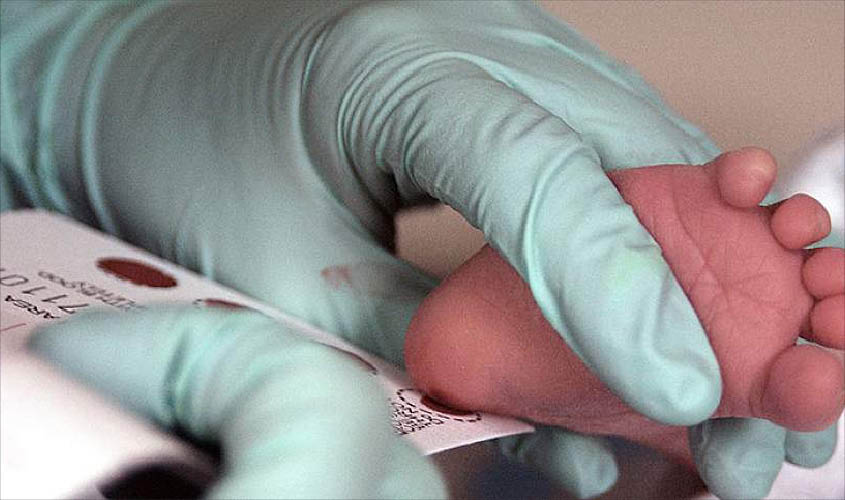Inborn errors of metabolism can easily be detected at an early stage through the test and diseases can be prevented even before their symptoms appear.
New Delhi: The doctors working in government hospitals like All India Institutes of Medical Sciences (AIIMS) as well as practicing in Delhi and national capital region (NCR) are strongly lobbying with the government to allow them to carry out ‘new-born screening’ (NBS) for all babies in India.
Known as a prevention programme, NBS includes a set of tests wherein the doctors can easily detect and prevent ‘inborn errors of metabolism’ (IEMs) which is referred to as congenital metabolic diseases or inherited metabolic disorders. These are rare genetic (inherited) disorders in which the body cannot properly turn food into energy.
Speaking to The Sunday Guardian, Dr Madhulika Kabra, Professor in Division of Genetics under Department of Pediatrics in AIIMS, and Dr Neerja Gupta, an Assistant Professor at the same division, said, “New-born screening will help in early defection of any disease, through which we will be able to prevent it at an early stage. NBS is important to improve the quality of life.”
“If detected at an early stage, diseases can be prevented even before their symptoms appear. Conditions such as congenital hypothyroidism, congenital adrenal hyperplasia, G6PD deficiency and various IEMs can be detected by NBS. Other disorders, without blood sampling, amenable to new-born screening are deafness and critical congenital heart diseases,” said Dr Gupta.
Both the doctors are of the opinion that the idea behind NBS is to see if the baby has a life-threatening or life-limiting disorder for which the treatment is readily available, effective and is economical. The tests take place through a few drops of blood taken from the infant earliest after 24 hours of life.
The doctors also explained that there are two types of situations – when the baby is delivered normally and when the new-born is sent to the nursery. “The babies sent to the nursery are the ones who go through NBS, our emphasis is that this changes and NBS becomes universal for every baby and not just specific ones,” said Dr Kabra.
Explaining the importance of NBS, Dr Sunita Bijarnia, Senior Consultant at Institute of Genetics and Genomics (IGG) at Ganga Ram Hospital, said, “Screening for newborn is not the same as that done when the baby is inside the womb. While the screening done during pregnancy is for chromosome disorder or Down syndrome, this is not what is included in the NBS.”
Dr Bijarnia further said that NBS is for diseases that are genetically inherited but you can fix the disorder even before the symptoms start showing up. “The idea is that the disease is preventable, although the treatment will continue lifelong but the child will be fine,” she added.
The importance of NBS is not a new phenomenon and has come up in discussions earlier as well. Dr Kabra asserted that back in 2013, doctors at AIIMS had requested the government to include NBS in its national health policies.
The doctors have again started underlining the need to include NBS as a national programmme. However, states like Kerala, Goa, Maharashtra, Tamil Nadu and parts of Uttar Pradesh and Haryana have started doing NBS on every child.
Speaking to this newspaper, Prof I.C. Verma, Adviser at IGG, said, “States like Tamil Nadu and Maharashtra have already started doing new-born screening in certain areas. And if it turns out successful, they are going to precede it with other parts of the state as well.”
“About 1,00,000 children were examined and it was found in Chennai that incidents of certain diseases are more than it was expected. For example, in case of diseases like congenital hypothyroidism, around the world there are usually 1 in 3,000 children, but in India we have 1 in 1,500 cases.”
Dr Bijarnia said that all the developed countries have NBS in their national health programme and India also needs to do the same. “Everywhere in the world, responsibility of taking up NBS lies with the government. Only the government can run such a universal programme. If we want to cover each and every new born in the country then it is the government that can do it,” she added.
The sudden need to bring NBS in national health programme is also due to the fact that India has technically advanced in terms of medical science and can now prevent diseases even before the occurrence of symptoms.
“There was a time when even the basic immunisation was also not available to children. So as we go forward and as our country is progressing, this is now a stage where we have developed sufficient infrastructure, technological advancement so that we can pick these children,” she explained.
“However, just detecting these disorders is not enough. Treatment is important which were not available before though there were some dietary modifications. Hence, now is the right time to add NBS in the policy,” added Dr Bijarnia.

